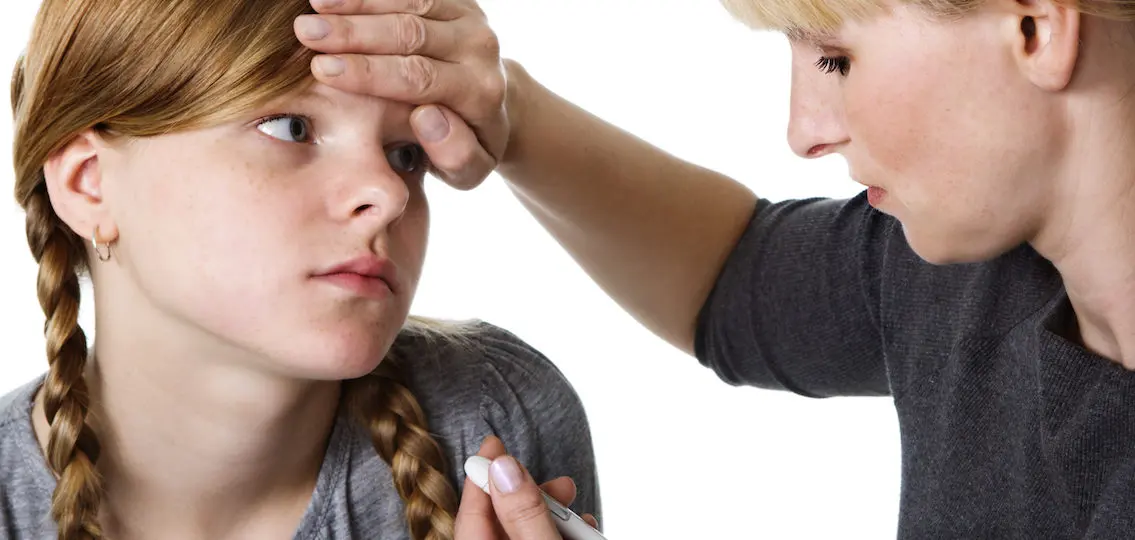For parents reading news coverage of the COVID-19 pandemic, one of the few silver linings has been that children seem to comprise only a small percentage of COVID cases, and their symptoms tend to be milder. According to the World Health Organization, the vast majority of kids who contract COVID-19 will recover fully, and pediatric deaths from the disease have been rare.
| [adrotate banner=”168″] |
It has, therefore, been unnerving for parents to read recent headlines about clusters of sick kids appearing in Europe and now here in the United States with what is being called Pediatric Multisystem Inflammatory Syndrome, or PMIS. The CDC is warning doctors to be on the lookout for a dangerous inflammatory syndrome in children that could be linked to COVID-19.
These cases resemble a rare illness called Kawasaki Syndrome, which causes blood vessels to become inflamed and is a leading cause of pediatric heart disease. To date, approximately 200 cases of PMIS have been diagnosed worldwide. Two children have died as a result of the disease, one in New York and one in the United Kingdom.
PMIS is a general name for what physicians believe is an inflammatory disease in children and teens caused by an acute infection resulting from exposure to COVID-19. It’s not an active infection, but rather a delayed immune response in children which appears two to four weeks after exposure to the virus. “Inflammation is a normal immune response when the body is fighting off infection,” says Dr. Simon Lee, a pediatric cardiologist and Director of the Kawasaki Disease Program at Nationwide Children’s Hospital in Columbus, Ohio. “But COVID-19 is causing the body to react with an overwhelming, disproportionate immune response to the kind of reaction you would typically see with a viral infection.”
What is Kawasaki Syndrome?
First identified in the 1960s, Kawasaki Syndrome is a rare inflammatory syndrome which affects between four and five thousand kids in the United States each year. Its cause is unknown. Three out of four patients are under the age of five.
“In most kids, Kawasaki Syndrome presents a constellation of symptoms that a physician cannot attribute to anything else, including a systemic inflammation of blood vessels, a rash, swollen lymph nodes in the neck, cracked lips, pink eye, and a high fever which lasts four to five days,” says Dr. Hector Wong, Director of Critical Care at Cincinnati Children’s Hospital in Cincinnati, Ohio.
Most kids recover in two weeks or less. But 10-15% of patients develop symptoms affecting their coronary arteries which can cause long-term heart problems. “Most kids will respond very well to therapies and recover just fine, but Kawasaki can give parents a good scare. Your kids are febrile, have a nasty rash, and look really sick.”
In April 2020, the United Kingdom released a statement describing a number of children who were critically ill.
These children presented some of the symptoms associated with Kawasaki Syndrome. “In the UK, they have tracked these infections much more closely than we have in the US,” says Dr. Lee. They began seeing infection rate in adults increase in early March. Not a lot of kids were reported with COVID viral infections. “But two to four weeks later, they began to see a cluster of kids popping up with these infections commonly associated with Kawasaki Syndrome, in places that don’t typically have occurrence of Kawasaki.” These patients tended to be older than Kawasaki patients. In fact, in New York an 18-year-old female has been diagnosed with PMIS. The common thread among these PMIS patients was either a positive test for COVID-19 or antibodies showing that they previously been exposed.
Is PMIS Related to COVID-19?
Physicians think PMIS may be related to COVID-19. One key indicator of PMIS is evidence of severe inflammation, which is similar to Kawasaki Syndrome. As its name indicates, PMIS can attack multiple organ systems, including the heart and lungs. It’s not an active viral infection, but instead, may be caused by a “dysregulated immune response” to COVID-19. “The majority of kids will handle a virus just fine. But maybe one in a hundred will have an aberrant response where the immune system just goes haywire,” says Dr. Wong. “Then the child’s body basically begins to attack its own tissues.”
Symptoms can vary. “With PMIS, we tend to see a spectrum of issues depending how the syndrome manifests,” says Dr. Lee. On one end of the spectrum, kids are very sick with bloodwork showing high levels of inflammation and coronary involvement. At the other end of the spectrum, kids have symptoms more like Kawasaki with a rash, pink eye, and several days of high fever
But is PMIS a “mysterious new disease,” as some media accounts have portrayed it?
Not necessarily. “In my twenty-five years of clinical experience, I’ve seen many, many kids who get a virus or bacterial infection, and at some later point, manifest a systemic inflammation,” says Wong. “Viruses do bad things to kids—but usually we only see two or three cases of Kawasaki per year. We’re just happening to see these clusters of infection in hot spot areas right now because there are more kids infected with COVID (and possibly many more that are unreported).”
What Symptoms Should Parents Look Out For?
- Fever of 101 degrees or higher which is persistent for several days
- Severe abdominal pain
- Diarrhea
- Vomiting
- Rash that cannot be explained by another cause
“This syndrome is not subtle,” says Dr. Wong. “Parents have good intuition about their kids. They are going to know the difference between a little fever and when something is really wrong.”
If parents observe these symptoms, get a medical evaluation by your pediatrician or primary care physician “who is well-versed in treating viral infections and can help parents identify anything that seems unusual,” says Dr. Lee. PMIS patients respond well to therapy with effective medical treatment.

For now, PMIS is considered a rare condition that is not likely to become widespread. Expect more cases of PMIS to develop, however, as rare consequences of viral infections will be more common as greater numbers of people become infected. While PMIS patients exhibit some typical Kawasaki Syndrome symptoms, some of their blood tests, including markers of inflammation, are more abnormal than patients with Kawasaki. “So far, we know the similarities between these two diseases. But we do not have sufficient information to fully understand the differences,” says Dr. Wong.





